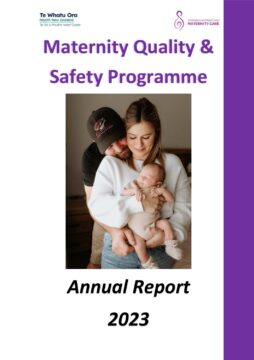It is with great pleasure that the 2023 Te Tai o Poutini annual maternity report is presented in the following pages.
It has been a busy year. The health system reforms have dominated the landscape but despite change and some uncertainty the entire multidisciplinary maternity team of Te Tai o Poutini continue to provide quality care to hapū māmā and whānau.
The focus of the maternity team is to provide equitable safe and sustainable maternity care for women close to home. Te Pae Tata and our obligations under Te Tiriti underpin all that we do. Maternity has a strong connection to community and whānau voice and this continues to play an important part in how we shape the system and service for now and into the future.
The community council continue to work hard to bring community voice to the service and help make improvements for whānau. Iwi Māori partnership boards will also inform us of our priorities as we head into the next two years. The newly formed National clinical network for maternity and the work plans under Kahu Taurima will also help remove variation and bring consistency across the motu in maternity guidelines and priorities.
This report shows cases some of the great work the maternity team in Te Tai o Poutini have done in 2023. The MQSP workplan is progressing well with national standards and indicators being actioned with local solutions.

